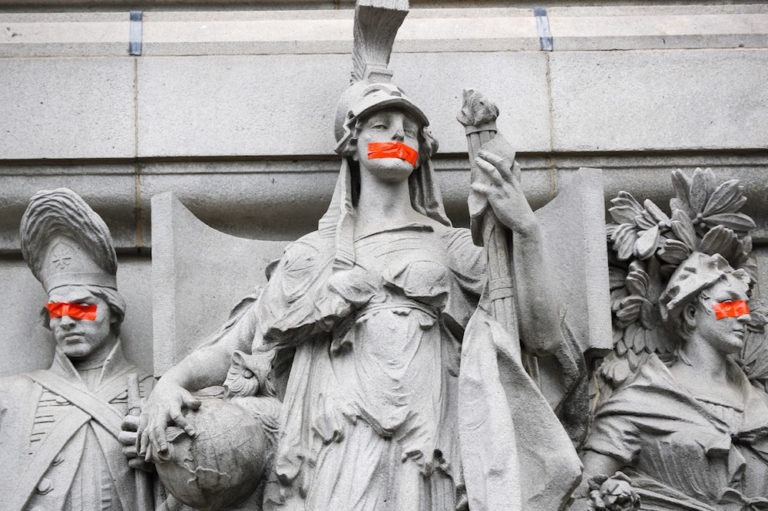Articles by Electronic Frontier Foundation (EFF)

Saving the news from Big Tech
“Something must be done about the way that tech abuses the press—but that something shouldn’t depend on tech’s eternal dominance. It shouldn’t make the press beholden to a scandal-haunted tech sector that desperately needs the scrutiny of investigative journalists” – EFF

United States: Government hasn’t justified a TikTok ban
Before taking such a drastic step to restrict TikTok, the government must come forward with specific evidence showing, at the very least, a real problem and a narrowly tailored solution.

Appeals Court upholds restriction on Twitter’s First Amendment right to publish national security transparency report
The court’s decision in Twitter v. Garland is seen as a disappointing, dangerous opinion that may well empower even broader uses of government power to censor speech by unwilling participants in government investigations.

The state of online free expression worldwide in 2022
“From internet shutdowns, crackdowns on expression and closed-door partnerships to attempts to restrict anonymity and end to end encryption, in many places, digital rights are under threat.”

UN Cybercrime Convention must be revised to include human rights safeguards
In a joint letter, human rights organizations and academics stressed that while they are not convinced that a global cybercrime convention is necessary, they reiterate the need for a human-rights-by-design approach in the drafting of the proposed UN Cybercrime Convention.

EFF files amicus brief challenging Orange County, CA’s controversial DNA collection program
“Plaintiffs are right – Orange County’s program violates residents’ constitutional right to privacy and should be stopped” – EFF

It’s time for a federal anti-SLAPP law to protect online speakers
The United States’ fair and independent courts exist to resolve serious disputes. Unfortunately, some parties abuse the civil litigation process to silence others’ speech, rather than resolve legitimate claims.

UN Cybercrime Treaty: EFF calls for limits and safeguards
“We’ve seen vaguely worded international cybercrime laws misused to violate freedom of expression, target dissenters, and put them in danger. It’s paramount that the proposed treaty does not invite abuse and overreach by countries by obligating states to cooperate in open-ended investigations of ill-defined criminal matters” – EFF
